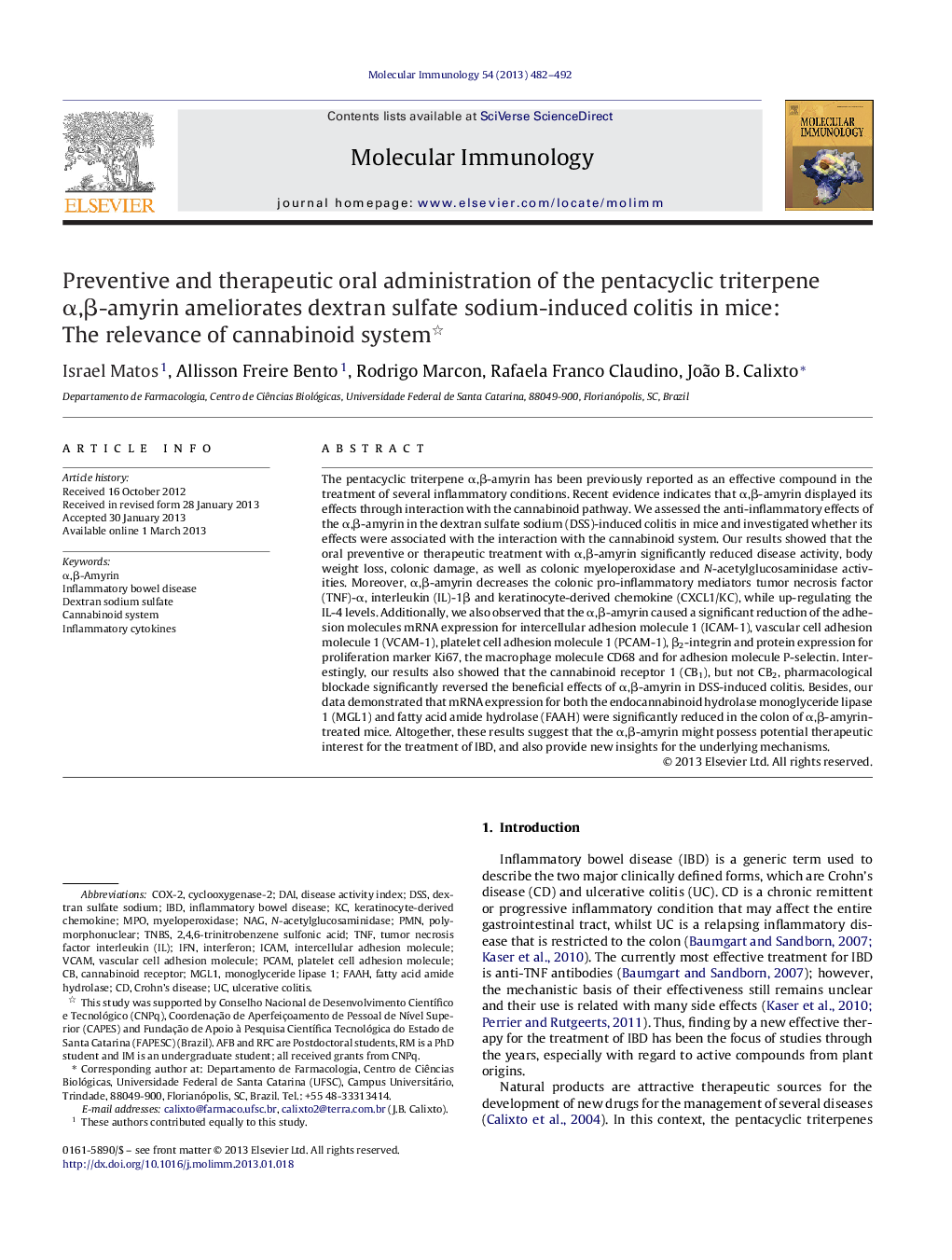| Article ID | Journal | Published Year | Pages | File Type |
|---|---|---|---|---|
| 2831205 | Molecular Immunology | 2013 | 11 Pages |
The pentacyclic triterpene α,β-amyrin has been previously reported as an effective compound in the treatment of several inflammatory conditions. Recent evidence indicates that α,β-amyrin displayed its effects through interaction with the cannabinoid pathway. We assessed the anti-inflammatory effects of the α,β-amyrin in the dextran sulfate sodium (DSS)-induced colitis in mice and investigated whether its effects were associated with the interaction with the cannabinoid system. Our results showed that the oral preventive or therapeutic treatment with α,β-amyrin significantly reduced disease activity, body weight loss, colonic damage, as well as colonic myeloperoxidase and N-acetylglucosaminidase activities. Moreover, α,β-amyrin decreases the colonic pro-inflammatory mediators tumor necrosis factor (TNF)-α, interleukin (IL)-1β and keratinocyte-derived chemokine (CXCL1/KC), while up-regulating the IL-4 levels. Additionally, we also observed that the α,β-amyrin caused a significant reduction of the adhesion molecules mRNA expression for intercellular adhesion molecule 1 (ICAM-1), vascular cell adhesion molecule 1 (VCAM-1), platelet cell adhesion molecule 1 (PCAM-1), β2-integrin and protein expression for proliferation marker Ki67, the macrophage molecule CD68 and for adhesion molecule P-selectin. Interestingly, our results also showed that the cannabinoid receptor 1 (CB1), but not CB2, pharmacological blockade significantly reversed the beneficial effects of α,β-amyrin in DSS-induced colitis. Besides, our data demonstrated that mRNA expression for both the endocannabinoid hydrolase monoglyceride lipase 1 (MGL1) and fatty acid amide hydrolase (FAAH) were significantly reduced in the colon of α,β-amyrin-treated mice. Altogether, these results suggest that the α,β-amyrin might possess potential therapeutic interest for the treatment of IBD, and also provide new insights for the underlying mechanisms.
Graphical abstractFigure optionsDownload full-size imageDownload as PowerPoint slideHighlights► Oral treatment with α,β-amyrin ameliorate disease activity in DSS-induced colitis. ► α,β-Amyrin treatment decrease leukocyte influx to the colon. ► The production of pro-inflammatory cytokines is inhibited by α,β-amyrin. ► α,β-Amyrin reduces mRNA expression for colonic adhesion molecules. ► The beneficial effects of α,β-amyrin seems be dependent of cannabinoid pathway.
